Top European Court holds hearing on Polish refusal to recognise same-sex marriage certificate
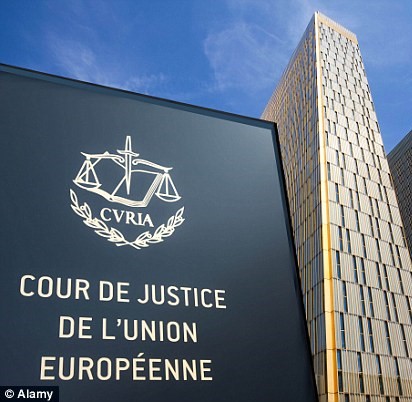
Case could establish critical precedent for the freedom of movement of same-sex couples within the EU
Yesterday, the Court of Justice of the European Union (CJEU) held a hearing in the case of Wojewoda Mazowiecki (C-713/23) concerning the recognition by Polish authorities of a same-sex marriage certificate obtained in another EU Member State.
The hearing follows Poland’s refusal to transcribe into the civil registry a certificate of same-sex marriage contracted in Germany between a Polish citizen and a Polish-German citizen. The couple currently resides in Poland.
The Court is asked whether this refusal conforms with the provisions of the Treaty on the Functioning of the European Union (TFEU) and of Directive 2004/38/EC, which establishes the rights of EU citizens to move and reside freely within the EU, read in conjunction with the European Charter of Fundamental Rights (ECHR), particularly the right to respect for private and family life and the prohibition of discrimination.
The Court is asked to follow the reasoning adopted in the recent judgment in the Mirin case, which confirmed that freedom of movement and other fundamental rights guaranteed under the Charter require authorities to transcribe changes to gender markers and forenames obtained in another EU Member State into their civil registries. By requiring Member States to amend entries in the birth certificates of EU citizens, Mirin ensures that the legal framework for registering and amending citizens’ data is consistent across EU Member States.
This would be a significant step towards the protection of same-sex couples across the EU, especially in light of recent European Court of Human Rights judgments in Przybyszewska and Others v. Poland which found the Polish state in violation of Article 8 (right to respect for private and family life) of the ECHR for failing to provide a specific legal framework recognising and protecting same-sex unions, and in Formela v. Poland which found that Poland breached the same provision for failing to recognise the relationships of two same-sex Polish couples married abroad.
According to Senior Strategic Litigation Officer with ILGA-Europe, Marie-Hélène Ludwig: “A positive ruling in this case would go beyond what the Court found in the Coman and Pancharevo cases and build on the Mirin judgment to recognise that transcription of marriage in civil registries is the only way to effectively ensure freedom of movement of same-sex couples in the EU, notably in countries still deprived of any legal framework recognising their union. This is especially important as marital status – just like one’s gender identity and sexual orientation – is a fundamental aspect of a person’s identity and personal status.”
According to attorneys Pawel Knut and Artur Kula from KMA Law Firm, the lawyers representing the applicants in the case: “The positive outcome of this case of may ensure that the transcription of the foreign marriage certificates of same-sex couples will be finally required from those Member States that still do not provide any form of legal protection for same-sex couples. We believe that this would also strengthen an effective protection for the rights of LGBT families around the EU”.
The Advocate General’s Opinion in this case will be rendered on 3 April 2025.ILGA-Europe is providing support to the applicants and their lawyers in this case.
Joint statement: Welcoming European Court judgement on Poland’s failure to protect same-sex couples married abroad
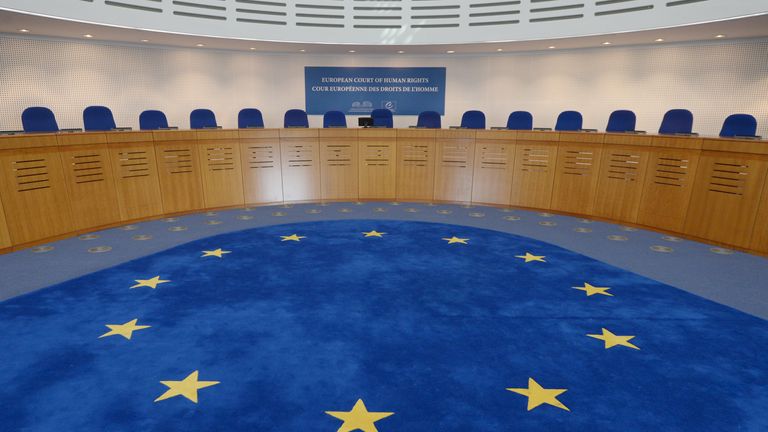
The European Court of Human Rights has found that Poland breached the right to respect for the family life of two same-sex Polish couples married abroad by failing to recognise their relationships.
ILGA-Europe, the International Federation for Human Rights (FIDH), the Network of European LGBTIQ* Families Associations (NELFA), and the European Commission on Sexual Orientation Law (ECSOL) jointly welcome a ruling released today in the case of Formela and others v. Poland, in which the European Court of Human Rights (ECtHR) found that Poland violated Article 8 (the right to respect for private and family life) of the European Convention on Human Rights.
The case concerned two same-sex Polish couples who married respectively in the UK and in Denmark, and requested Polish authorities to register their marriages contracted abroad. The authorities dismissed the requests, finding that registering their marriage would be contrary to the Polish legal order which allowed only marriage between different-sex couples. This failure resulted in the applicants’ inability to regulate fundamental aspects of their daily lives: they were prevented from taking leave to care for their ill partner; could not extend health insurance to cover their partner; were treated as being unrelated in the field of taxation and could not benefit from an exemption from donation tax granted to next-of-kin or from the right to submit a joint tax declaration.
The Court decided that “by refusing to register the applicants’ marriages under any form and failing to ensure that they have a specific legal framework providing for recognition and protection, the Polish authorities have left them in a legal vacuum and have not provided for the core needs of recognition and protection of same-sex couples in a stable and committed relationship.” The Court added that none of the public interest grounds put forward by the Polish authorities could prevail over the applicants’ interest in having their respective relationships adequately recognised and protected by law.
The Court referred to its landmark judgement of December 2023 in Przybyszewska and others v. Poland finding that Poland had breached Article 8 of the Convention as it had failed to comply with its positive obligation to ensure that same-sex couples had a specific legal framework providing for the recognition and protection of their unions.
Poland is also bound by the 2018 Court of Justice of the European Union Coman landmark ruling requiring EU Member States to treat same-sex couples in the same way as different-sex couples when they exercise freedom of movement rights in the EU.
On 27 December 2023, Poland’s Prime Minister, Donald Tusk, announced that a bill to legalise same-sex unions would be introduced and debated in early 2024. This bill was added to the government’s agenda on 8 July 2024.
Annamaria Linczowska, Advocacy and Litigation Officer at Campaign Against Homophobia (KPH) in Poland said: “Today’s verdict shows once again that through lack of legal protection and recognition of same-sex couples, Poland does not meet the Council of Europe standards of human rights protection. Poland should no longer be one of the few CoE Member States that do not provide recognition for same-sex couples. This judgement is an important argument for implementation of civil unions and marriage equality in Poland. To provide a wide protection of human rights, Poland can not forget about same-sex couples and their safety.”
Read KPH’s press release here.
According to Milena Adamczewska-Stachura, who represents the Love Does Not Exclude Association, involved in the fight towards marriage equality in Poland: “Today’s rulings are a wake-up call for the Polish government, reminding it that the unchanging, complete lack of protection for same-sex couples violates the European Convention on Human Rights. Today’s judgement is an important tool for legal practitioners who fight in the courts for transcription of foreign marriage certificates, and a small but important step towards equality.”
ILGA-Europe, FIDH, NELFA and ECSOL submitted a joint intervention in the case.
According to Senior Strategic Litigation Officer at ILGA-Europe, Marie-Hélène Ludwig: “Today’s judgement is another important step towards due recognition and protection of same-sex couples in Poland, whether they are married abroad or wish to legalise their unions in Poland. It is however unfortunate that the Court considered once again that it was unnecessary to examine the applicants’ complaint under Article 14 of the Convention (non-discrimination).”
Daniel Martinović, President of NELFA, said: “We welcome today’s judgement as a powerful affirmation of the rights of same-sex couples in Poland and beyond. This ruling should serve as a beacon of hope and strength for all queer families, inspiring us to continue striving for a more inclusive and secure future where our relationships are recognised, respected, and protected.”
Helmut Graupner, Co-Coordinator of ECSOL, pointed out that “this is the second time Europe’s highest human rights court made clear that Poland is violating the European Convention of Human Rights by refusing same-gender couples formal recognition of their partnership. It should cause Poland to speedily meet European minimum human rights standards. If not going beyond them, as it had done by completely decriminalising homosexuality as early as 1932 when many other European countries like Great Britain, Germany, Austria, Switzerland, Czechoslovakia, Hungary, Norway and Finland still had a criminal total ban on consensual homosexual relations between adults.”
“Today’s European Court of Human Rights’ ruling sends a strong message to Poland and all Council of Europe member states that they must urgently address the persistent discrimination against same-sex couples and grant them equal rights with heterosexual couples’ concluded Elena Crespi, Head of the Europe Programme at FIDH. “The judgement also offers the Polish government a chance to demonstrate its commitment to implementing European court rulings, as part of its efforts to restore the rule of law and align Poland with international standards’.
Greece adopts historic bill introducing marriage equality
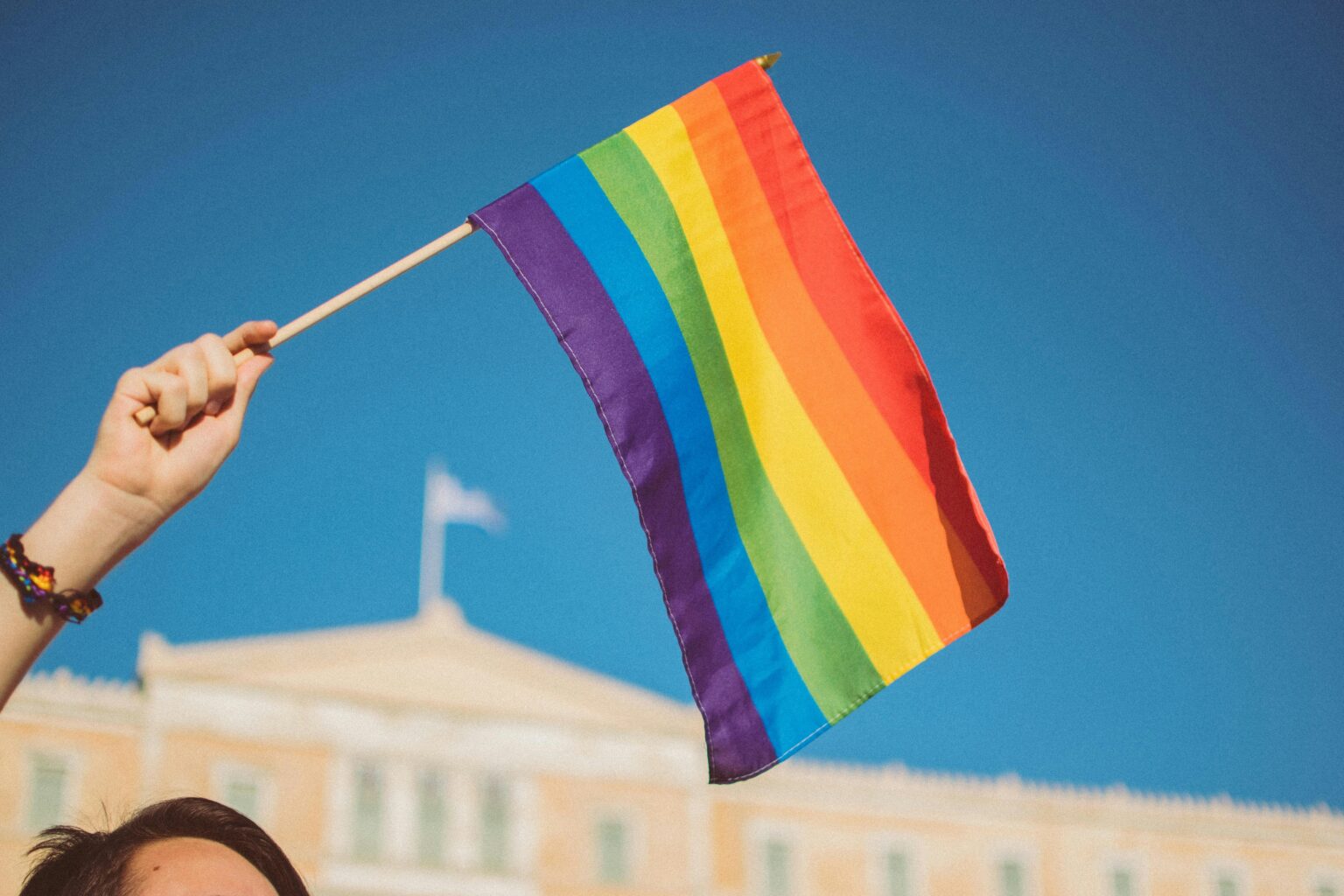
We welcome and celebrate with local activists the news that the Greek parliament has adopted an historic bill introducing marriage equality, granting marriage and adoption rights to same-sex couples, as well as fully recognising marriages that took place in other countries, and family ties of children who were born abroad to same-sex parents.
ILGA-Europe and NELFA welcome the news from yesterday, 15 February 2024, that the Greek Parliament adopted a bill introducing marriage equality.
This vote reflects the trend in Greek and European societies towards increasing equality for same-sex couples. The new marriage equality law will grant marriage and adoption rights to same-sex couples, as well as fully recognise all marriages and family ties of children who were born abroad to same-sex parents, and comes as a result of clear political leadership from the current Greek government.
The adoption of this law comes at a time when public acceptance of LGBTI people is on the rise in Greece and across Europe. In fact, an EU survey conducted in 2023 shows that public opinion in Greece as regards same-sex marriage is at an all-time high, marking also the largest increase in approval across all of the EU since the last iteration of the survey in 2019.
The law also follows a number of important legislative steps taken by the current Greek government to improve the access of LGBTI people to their rights and dignity, such as becoming the fifth European country to ban intersex genital mutilation (IGM) in July 2023, lifting the ban on men who have sex with men to donate blood in January 2023 and banning so-called ‘conversion practices’ against LGBTI minors and ‘vulnerable’ LGBTI people in May 2023.
Despite this important step towards equality for LGBTI families, the law does not remove all discrimination as:
- The law does not allow for access to in-vitro fertilisation (IVF) for same-sex couples of two women, meaning that the current discriminatory practice of only single women unable to conceive a child being able to access IVF in a Greek clinic, persists. This should also be made possible for same-sex couples made of two women, who also cannot conceive a child otherwise. Of the 19 EU countries which allow access to IVF for single women, the vast majority of them also allow access to IVF for female couples, coming to a total of 15. This reflects trends across the EU to ensure more equitable access to family and reproductive rights.
- Currently in Greece, altruistic surrogacy is available to opposite-sex couples only, creating a discrimination on the basis of sexual orientation i.e. gay men do not have equal access to the ability to have a child and form a family. The new law has not addressed this.
Greece’s adoption of marriage equality is a hugely important step for the recognition of equality of all couples, and a first step in achieving equality for all parents and people who wish to form a family. We encourage the Greek government to look at the remaining gaps in legislation and to propose measures to bring full equality for rainbow families in Greece.
Join statement by:
- ILGA-Europe
- NELFA – Network of European LGBTIQ* Families Associations
A.B. and K.V. v Romania
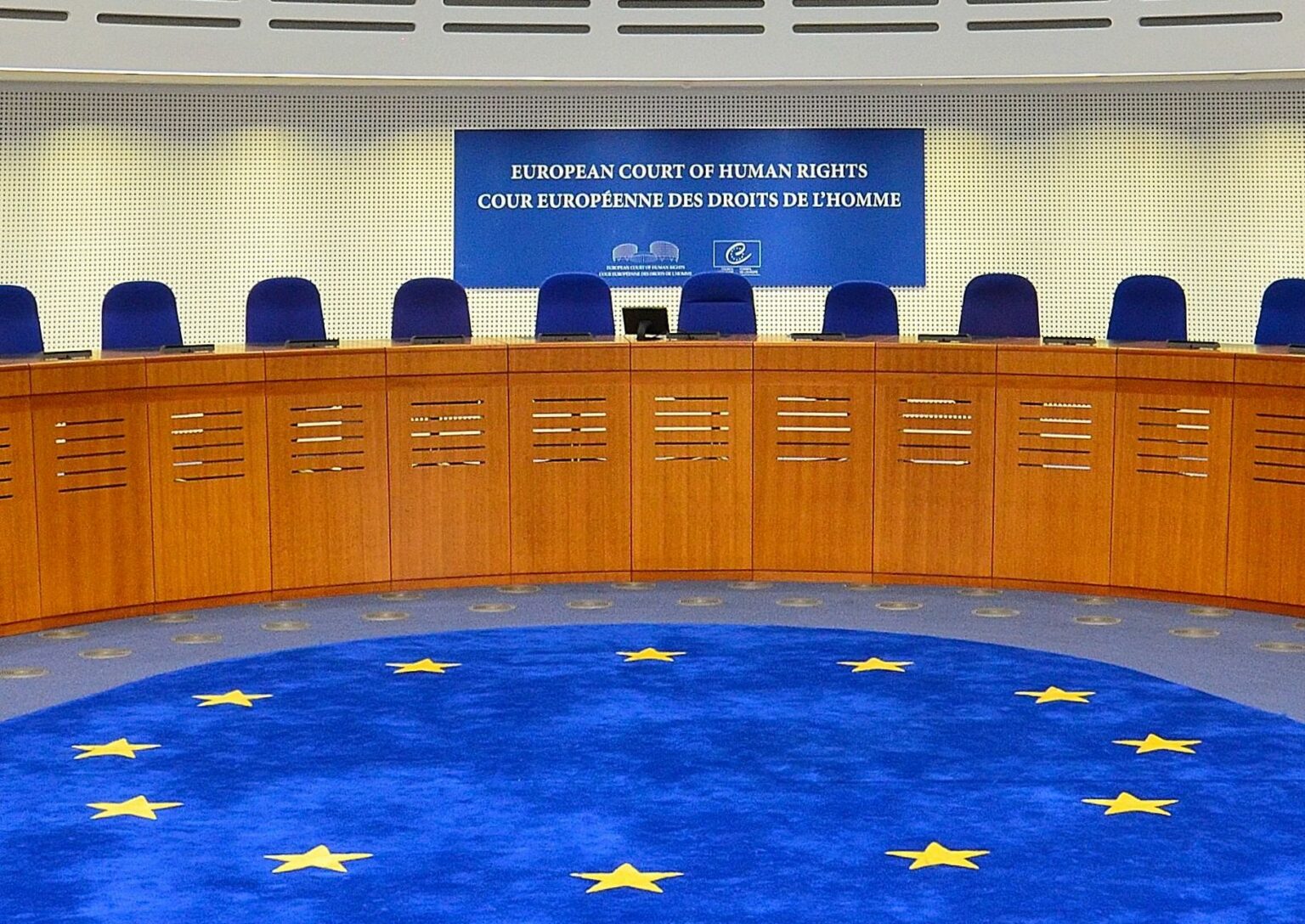
Recognition of same-sex marriages in the context of freedom of movement in the EU through the prism of implementation of CJEU’s Coman judgment
Submitted jointly by ILGA-Europe and AIRE Centre
How Baby Sara and her mums have pushed forward the rights of all rainbow families across the EU

When an EU country recognises a child and its same-sex parents as a family, all EU countries should recognise them as such, so to guarantee their freedom of movement. This is what the EU’s top court ruled in December. But how this case has advanced LGBTI rights in the European Union and what comes next for rainbow families?
At the end of 2021, the Court of Justice of the European Union (CJEU) ruled that if one EU country recognises the child’s parental relationship, then all EU countries should do the same to guarantee the child its freedom of movement across the region, a right of all EU citizens.
The ‘Baby Sara’ case, as it has become known, will have a long-term impact on rainbow families in the EU. Born in Spain to a lesbian couple, baby Sara was denied citizenship there because neither of her Bulgarian and Gibraltarian mothers are of Spanish descendent. Under the British Nationality Act, Gibraltar-born parents cannot transfer UK citizenship.
So, Bulgaria was the one reasonable option left for the family. But same-sex unions are not recognised in Bulgaria and two persons of the same sex cannot be registered as the parents of a child. The Bulgarian authorities thereby refused to issue a birth certificate on which the parents are two women, choosing to not recognise a valid EU birth certificate from another member state. This left baby Sara at risk of statelessness. She had no identity documents and could not leave Spain.
After December’s CJEU judgment, the Bulgarian authorities are obliged to issue an identity card or a passport to baby Sara, a ruling that all other EU countries should recognise.
So, what are the real implications for rainbow families?
Following the CJEU ruling, Baby Sara and her mothers must be recognised as a family for the purposes of EU law, and must be able to enjoy freedom of movement in all EU countries. Freedom of movement, the right of persons to move and reside freely within the territory of EU member states, is a right of all EU citizens.
This is the first case where the CJEU has ruled on cross-border recognition of parental ties in rainbow families. It stated that it is against the fundamental rights of the child to be deprived of the familial ties established in an EU country when traveling in the EU. The family ties were not recognised in baby Sara’s birth cert application because the parents are two persons of the same sex.
The court also clarifies that national identity cannot be used as an argument to deny freedom of movement to rainbow families. This means that it does not undermine Bulgaria’s national identity to recognise parenthood established in Spain, another EU country, an argument often brought by those countries that do not recognise same-sex families.
In other words, the Court has not obliged Bulgaria to allow and recognise same-sex couples in its territory as the parents of a child. Rather, it simply requires Bulgaria to recognise the familial ties among the members of rainbow families — as these have been established in another EU country — when the family moves to its territory.
Finally, the ruling gave legal endorsement to European Commission’s President Ursula von der Leyen 2020 State of Union address, when she affirmed that “If you are parent in one country, you are parent in every country”.
Will the Baby Sara judgement immediately free up movement for rainbow families in the EU?
Implementation is the crucial part of any European court ruling, and often this is fraught with difficulties and time consuming.
The work of the CJEU has finished for now. The Bulgarian authorities must find a solution and decide on the type of identity documents for Sara. This might take time, and considering the situation of LGBTI rights in the country (Bulgaria is in 37th position out of 49 in our 2021 Rainbow Map of legal rights for LGBTI people in Europe), it may mean additional hurdles for baby Sara’s family and further litigation. For example, the Coman case, also related to same-sex unions and freedom of movement, has not been implemented by Romania after three years since the judgment.
However, if Bulgaria or other countries that do not recognise rainbow families refuse to implement the CJEU judgment, the European Commission can start infringement procedures, as these countries would breach EU law. If carried to their last step, this can mean financial penalties against Bulgaria.
So, it’s not as easy as a judgement being made and every country in the EU suddenly opening its borders to rainbow families. But, the world watched the judgement in the Baby Sara case closely, and it was a major step forward in the recognition of the children of same-sex parents across the European Union. We will be watching the implementation of this case very closely too, and will report on how it is progressing.
At the same time, the European Commission is in the process of working on new legislation on the EU-wide recognition of parenthood as well as on guidelines on ensuring freedom of movement for all. We will work hard to ensure that the judgment will be fully reflected and respected there, with the hope that one day soon, all rainbow families will be able to enjoy the rights that every other family in the EU take for granted.
Coman and Others v Romania

Recognition of same-sex marriages in the context of freedom of movement in the EU through the prism of implementation of CJEU’s Coman judgment.
Submitted jointly by AIRE Centre, ICJ and ILGA-Europe.
Rainbow Family Rights in Europe – Part 4: At a Crossroads in Ukraine
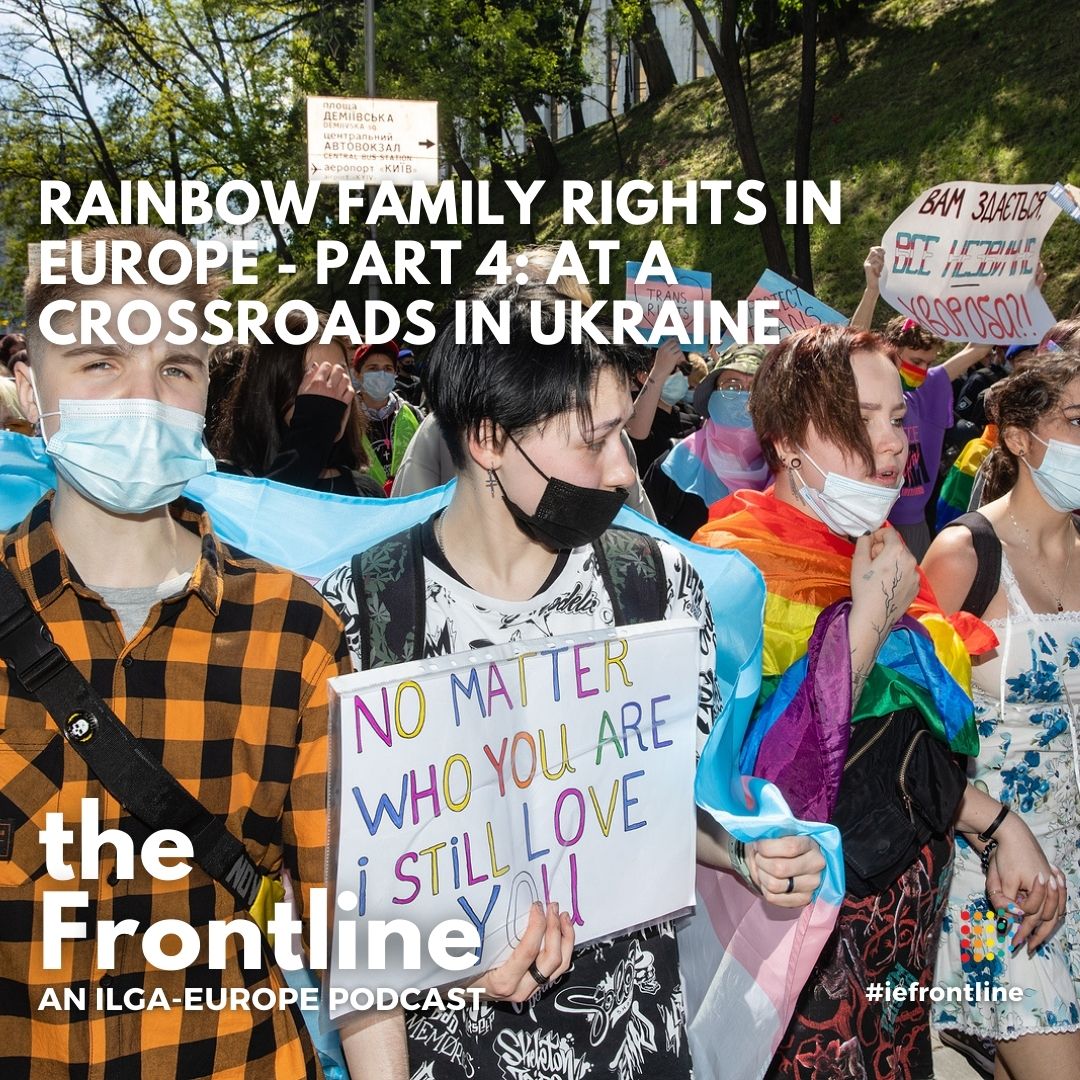
Several pathways for partnership rights were part of the Ukraine took in EU-Ukraine Association agreement 2014-2016.
Based on it the Ukrainian government developed a human rights strategy plan 2013-2019 which included specific commitments to LGBT rights, but many elements of this strategy were not implemented, and civil partnership was dropped from it. However, post-revolution and against the backdrop of Russia’s ongoing military intervention, it is a crossroads time for LGBTI and partnership rights in the country.
In the fourth part of our mini-series on rainbow family rights, during which we we’re looking at the issues affecting LGBTI partners, parents and their children across Europe, we are joined by activists Olena Shevchenko, from the Kyiv-based organisation, Insight and Andriy Maymulakhin, from Nash Mir in the city of Luhansk, about the outlook for partnership rights in Ukraine.
Charron & Merle-Montet v. France

Access to MAP
(Application No. 22612/15), 12 June 2017
Find here the communicated case.
Find here the decision of inadmissibility.
- The applicants, a same-sex married couple, complain that their request for artificial insemination has been rejected on the ground of their sexual orientation. Donor insemination is legal in France and has been available, since at least 1994, to unmarried different-sex couples.
- ILGA-Europe together with FIDH, NELFA, ECSOL, LDH, ADHEOS and ADFH submitted the following:
- The decision to apply for a legally available opportunity to become a genetic parent clearly falls within the ambit of Article 8, whether taken on its own or in conjunction with Article 14. The Court’s consistent case law prohibits differences in treatment between same-sex couples and unmarried different-sex couples. It has found discrimination, violating Article 14 combined with another Convention right, where a same-sex couple was denied a right or opportunity granted to unmarried different-sex couples.
- The situation of a lesbian couple is relevantly similar (or comparable) to the situation of an unmarried different-sex couple who request donor insemination, so that the female (but not the male) partner can become the genetic parent of a child. Particularly serious reasons, or particularly convincing and weighty reasons, do not exist for the difference in treatment between lesbian couples and unmarried different-sex couples.
- Developments in other Council of Europe member states and other democratic societies support a narrow margin of appreciation. Indeed, in the majority of Council of Europe member states, and in other democratic societies, lesbian women have access to donor insemination, as individuals or as couples.
Nikolay Alekseyev and Movement for Marriage Equality against Russia
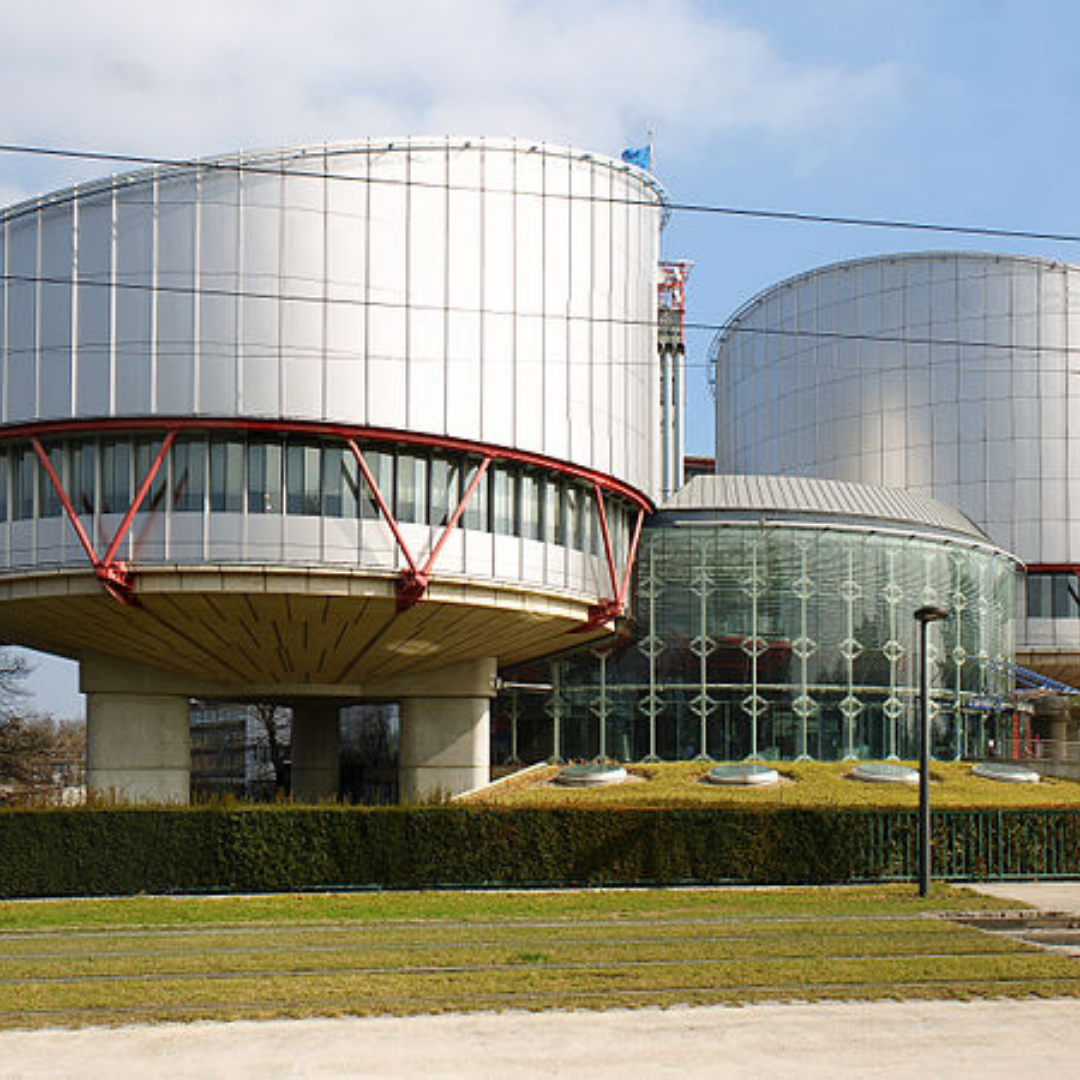
Freedom of association
Application No. 58282/12, 29 July 2016
Find Court’s communication here.
- The applicants (Mr Alekseyev, the founder and executive director of the second applicant, Movement for Marriage Equality, aimed defending human rights in the sphere of marriage relations, of combatting discrimination on the grounds of sexual orientation and gender identity and of promoting equality for gays, lesbians, bisexuals and transsexuals, in particular through legalisation for same-sex marriage ) complained about the refusal to register the organisation and of discrimination on grounds of sexual orientation. They argued that the refusal to register the organisation was based on the Russian authorities’ conviction that homosexuality was immoral.
- ILGA-Europe together with the European Human Rights Advocacy Centre and the ICJ submitted the following:
- According to the ECtHR, associations formed for the purposes of asserting a minority consciousness are protected by freedom of association.
- Under international and European standards, restrictions to freedom of association require a very strong justification. The ECtHR has recognised that the Convention requires the exercise of the right to freedom of expression and peaceful assembly by LGBT persons.
- Sexual orientation is a prohibited ground of discrimination (Article 14 of the Convention) according to the ECtHR. A restriction imposed on grounds of public morality will not be regarded as compatible with European and international standards where this is inconsistent with other protected rights and, in particular, entails discrimination on grounds of sexual orientation.
- ECtHR delivered judgment on 16 July 2019, where it found that refusals to register the applicant organisations on the ground that they promoted LGBT rights cannot be said to be reasonably or objectively justified, thus were in violation of Article 11 on freedom of association in conjunction with Article 14.
ILGA-Europe’s key demands for the recognition of diverse families
Position on partnership and parenting, adopted in October 2006, revised in 2014.
ILGA-Europe strives for equality in law, public policies and practices relating to any form of partnership (including marriage, registered partnership and cohabitation) and parenting (reproductive rights, adoption, fostering and parental responsibility). ILGA-Europe particularly strives for the elimination of restrictions on the rights and responsibilities of partners and parents based on sexual orientation, gender identity or gender expression. Furthermore, ILGA-Europe supports an inclusive understanding of family that is not dependent only on the legal status of marriage or partnership but also on the recognition of de facto family links. Most importantly, the rights of the child are at the core and guiding ILGA-Europe’s demands for recognition of diverse families.
Oliari and Others and Orlandi and Others v Italy

Same-sex marriage/ Civil union
Oliari and Others (No. 18766/11),
Orlandi and Others v Italy (No. 26431/12), 27 Mars 2014
Find Court’s judgement here. (Violation of Article 8 of the Convention and award of damages)
- The applicants complained that the Italian legislation did not allow them to get married or enter into any other type of civil union and thus they were being discriminated against as a result of their sexual orientation.
- The European Court of Human Rights delivered its judgement on 21 July 2015.
- The Court made a lengthy reference to the submission, particularly the demonstration of the positive obligation to provide some means of recognition supported by the emerging consensus in European and other democratic societies (paras 134-139) and of the indirect discrimination against same-sex couples (paras 140-143).
- The Court found that the Italian Government had overstepped their margin of appreciation and failed to fulfil their positive obligation to ensure that the applicants have available a specific legal framework providing for the recognition and protection of their same-sex unions (para 185). To find otherwise today, the Court would have to be unwilling to take note of the changing conditions in Italy and be reluctant to apply the Convention in a way which is practical and effective (para 186). It found violation of Article 8 of the Convention, and considered unnecessary examining the allegations under Articles 14 in conjunction with 8, and Article 12.
Stéphane Chapin & Bertrand Charpentier v. France

Same-sex marriage
(Application No. 40183/07), 27 October 2009
Find Court’s judgement here in French.
- The applicants, a same-sex couple, complained that the French authorities’ refusal to allow them to contract marriage violated Article 12 and 14 of the Convention.
- ILGA-Europe, together with FIDH, ICJ and AIRE Centre submitted the following:
- There is need for guidance on whether “family life” in Art. 8 should be interpreted as including same-sex couples. According to the interveners Karner v. Austria implies that same-sex couples (without children) enjoy “family life”. Furthermore, national courts in European and other democratic societies have treated unmarried same-sex couples (without children) as families.
- The interveners also submitted that if the European Convention does not yet require equal access to legal marriage for same-sex couples, it is indirect discrimination based on sexual orientation to limit a particular right or benefit to married different-sex couples, but provide no means to qualify for same-sex couples. There also is a growing consensus in European and other democratic societies that same-sex couples must be provided with some means of qualifying for rights or benefits attached to marriage.
- The European Court of Human Rights delivered its judgement on 9 June 2016.
- It reiterated its findings in the case of Schalk & Kopf v Austria that Article 12 of the Convention does not impose an obligation on the respondent Government to grant a same-sex couple access to marriage.
M.W. v. United Kingdom

Social security rights
(Application No. 11313/02), 5 November 2008
Find Court’s judgement here. (Complaint rejected as manifestly ill-founded)
- The applicant complained that, as a survivor of a same-sex couple who had had no means to achieve formal recognition of their relationship, he had been denied a benefit available to a survivor of a married couple.
- ILGA-Europe, together with FIDH, ICJ and AIRE Centre, submitted the following:
- If the European Convention does not yet require equal access to legal marriage for same-sex couples, it is indirect discrimination based on sexual orientation to limit a particular right or benefit to married different-sex couples, but provide no means for same-sex couples to qualify. There is a growing consensus in European and other democratic societies that same-sex couples must be provided with some means of qualifying for rights or benefits attached to marriage.
- The right to equal treatment requires that the State find alternative means to allow the survivor of a same-sex couple to receive Bereavement Payment. The adoption of the Civil Partnership Act should be seen as confirming that the previous situation, in which same-sex couples had no means of achieving official recognition of their relationship, was discriminatory.
Schalk & Kopf v Austria

Same-sex marriage
(Application No. 30141/04), 26 June 2007
- The applicants, a same-sex couple, complained that the authorities’ refusal to allow them to contract marriage violated Article 12 of the Convention.
- ILGA-Europe, together with FIDH, ICJ and AIRE Centre submitted the following:
- There is a need for guidance on whether “family life” in Art. 8 should be interpreted as including same-sex couples. They consider that Karner v. Austria (2003) implies that same-sex couples (without children) enjoy “family life”. Furthermore, national courts in European and other democratic societies have treated unmarried same-sex couples (without children) as families.
- If the European Convention does not yet require equal access to legal marriage for same-sex couples, it is indirect discrimination based on sexual orientation to limit a particular right or benefit to married different-sex couples, but provide no means for same-sex couples to qualify. There also is a growing consensus in European and other democratic societies that same-sex couples must be provided with some means of qualifying for rights or benefits attached to marriage.
- The European Court of Human Rights delivered its judgment on 24 June 2010.
- The Court considered that Article 12 does not impose an obligation on the respondent Government to grant a same-sex couple such access to marriage (para 63). However, the case is important because the Court held that the relationship of the applicants, a cohabiting same-sex couple living in a stable de facto partnership, falls within the notion of “family life”, just as the relationship of a different-sex couple in the same situation would (paras 94-95). Further, the Court observed that legislation gave the applicants a possibility to obtain a legal status equal or similar to marriage in many respects.